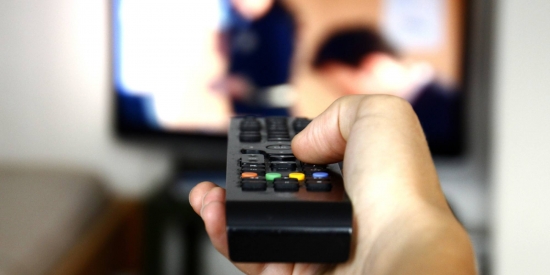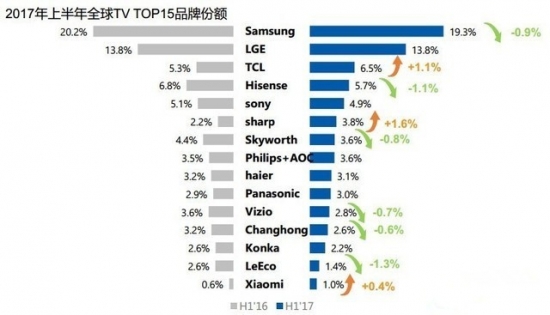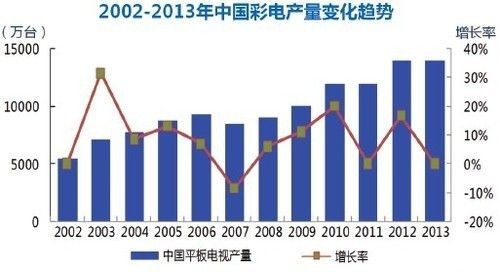Le Jun, the CEO of LeTV, who has only been in office for 5 months, has confirmed the resignation. According to the relevant media, the answer was “a period of self-cultivationâ€. At the same time, LeTV, who just changed his position, became the new CEO, Zhang Zhiwei, and was exposed. Think that it is most likely to succeed Liang Jun.

One is to help Letv lay down the key players of the Internet TV, and one is to return to the core after Sun Hongbin enters LeTV. A “new balance†between new friends and old friends will inevitably lead to the imagination of the outside world. Especially after experiencing abandoning the rumor, Liang Jun's withdrawal has added more unfavorable factors to LeTV, which is stuck in the mystery of life and death.
In fact, LeTV's ability to fully restore TV services is second only to the more critical is the entire Internet TV industry, not because of the boss's change caused severe market reaction, but there are many signs of depression and depression. What kind of status does this indicate, whether it is the immature market or the inevitable result of the short-lived Internet television?
Where does LeTV lose its share?
LeTV may once have become the core subject supporting Jia Yueting's "ecological" construction. However, with the crisis of music and the replacement of new ones, LeTV has reached a critical point in life and death. According to the data from China Medical, LeTV’s sales volume from January to July this year accounted for more than 50% of the year-on-year decline. During the period of “618†e-commerce sales, sales volume fell 57% year-on-year.
Correspondingly, in the first half of this year, LeTV generated a new revenue of 4.653 billion yuan, a year-on-year decrease of 37.64% and a net profit loss of 282 million yuan. In addition, as of the end of June this year, LeTV’s new assets totaled 13.784 billion yuan, liabilities were 10.05 billion yuan, net assets were only 3.731 billion yuan, and current liabilities required to be repaid in the coming year amounted to 7.076 billion yuan. It must be said that LeTV wants to regain its strength and re-start within three months, which is a bit difficult.
Looking back at Xiaomi, statistics show that Xiaomi TV's sales volume in the first quarter increased by 6% year-on-year, and it jumped by 67% year-on-year in April. This year, the performance of the 6·18 millet TV was just as good. It is said that the sales volume has soared by 500%. In September, the growth momentum of millet TV reached the peak, and the 4A series of online sales won the top three.
In this shift, sales of LeTV and Xiaomi did meet the market's expectations, but LeTV was not able to become a successor to Xiaomi, and they picked up the banner of Internet TV again. From a macro perspective, Xiaomi did not respond accordingly. Gains lost music market share.

The above is a survey of data from Ovid Cloud. The picture shows the market share of major TV brands in the first half of 2017, of which LeTV accounted for 1.4% and Xiaomi was 1.0%. Logically speaking, LeTV's market share in the first half of 2017 fell by 1.3%. If Xiaomi basically gains LeTV’s lost market share, Xiaomi’s global share will reach 1.9%, which exceeds LeTV and becomes the first in the Internet TV industry. .
But the reality is that although Xiaomi’s TV sales have soared, the market share has only increased by 0.4%. Even considering that Storm TV is competing with Letv as the market vacuum left behind, according to the latter’s volume, Xiaomi will not only grab such a small amount. The weight.
From this point of view, it can be seen from the above that the market share of traditional domestic manufacturers such as Changhong and Skyworth has generally declined, and the strong growth of TCL is mainly due to the good progress of overseas markets. One explanation, that is, Sharp returned to the market.
Taking the market performance of major brands in October this year as an example, the share of domestic traditional brands, while maintaining an absolute advantage, has dropped by 5.7% compared with the same period of last year. The sales volume under Sharp TV line accounted for 13.2%, second only to Hisense Skyworth, and 12.7% on the line. Second only to Hisense, the sales volume of 60-inch products ranks first among all products. .
The market gap caused by the sudden drop in Levision didn't let its biggest competitor Xiaomi snatch it away. Instead, it became a veteran TV manufacturer. This may mean that the core of the industry competition is to win with quality, and it was previously seized by Internet TV to take the initiative. Returning.
There are very few people in the Internet TV camp
Before LeTV was defeated by this defeat, he once had a data battle with Hisense. Although the final Ovid cloud network came out in a round field, which led to the struggle for the first place, it did not continue, but this incident was enough to explain LeTV at that time. In a short period of time, it was actually able to compete with traditional TV giants. It can be seen that the argument that Internet TV once subverted the industry structure was not entirely based on marketing momentum.
But now, with the departure of Liang Jun, LeTV's rebirth of the TV business is probably even more difficult. Therefore, if you want to counter traditional giants such as Hisense and Skyworth in an unfavorable environment, then only millet, storms, and micro-whales will be left. Can the three re-invigorate the Internet TV market that has been quiet for a long time? Or, put it another way, Who will succeed LeTV as the next industry benchmark?
First look at the counter-trend millet. According to data provided by the survey agency, in the first half of 2017, the domestic retail share of the traditional color TV brand market was 69.1%, which was 0.3% lower than the same period of last year. The share of the Internet color TV brand retail market was 12.0%, which was a decrease of 4.0 percentage points from the same period of last year. In this general and depressing market environment, Xiaomi is one of the few manufacturers that have grown sales in China.
According to the data of China Yikang, the sales of the millet TV line in January-July 2017 rose by 91.2% year-on-year, and the increase was rapid. During the promotion period in September, Xiaomi TV sales were ranked first in several major platforms including Jingdong, Tmall, and Suning. Of course, it cannot be denied that the predicament of LeTV is a major factor in Xiaomi’s ability to achieve rapid growth, but more importantly, it should be attributed to the market effect of low-price strategies.
However, this is also the most critical doubt for the future development of Xiaomi TV. Just as Xiaomi Mobile was born and turned into a counterfeit game with price-performance and online marketing, the higher the number of hard-power manufacturers, the higher the decline. awful. Millet TV in the industry is not such a role? In the name of Internet TV, trying to fight against established solid giants, although the current performance has exceeded expectations, but no one can guarantee that millet TV will not repeat the mistakes of mobile phones.
The strength of the storm and the micro-whale are relatively worse. In addition to the emergence of the micro-whale on the double eleventh last year, the micro-whale has not been much of a movement since then. There are no micro-whales in major marketing festivals and major marketing events. List. The Storm TV was repeatedly challenged by the outside world, serious losses, delisting the main body, difficult financing, and a strategic layout that is very similar to LeTV, making the storm has been burdened by the pressure of public opinion on the "Next LeTV."
According to relevant reports, in 2016, the shipment of Storm TV exceeded 1 million units, and the production of TVs for micro-whales was 800,000 units. According to the latest data obtained from sources, the current shipment of Storm TV is 500,000. Taiwan, the production of micro-whale TV only 400,000 units.
In view of this, LeTV fell in the most difficult year of Internet TV, and it was not a good thing for the entire industry. Because no one succeeds, it is very likely that Internet TV will be suppressed by traditional TV manufacturers and it is difficult to turn over. .
The Internet invasion industry, traditional manufacturers have become the biggest beneficiaries
Competitors in the Internet TV camp that can compete with traditional TV makers are basically zero for a short period of time. This is an excellent opportunity for the old TV giants that have been robbed of the previous years to be a once-in-a-lifetime force. Especially the serious situation of the TV industry this year has indirectly proved that relying on the hard power accumulated for many years, they are enough to fight a beautiful defense against market risks.
In addition, the decline of Internet TV is not simply due to LeTV’s frustration. This can be seen from the position of Xiaomi or Storm’s failure to replace Letv. After all, if the market demand for Internet TV is still strong, then after panel prices fall, Xiaomi would have been able to swallow up most of LeTV’s lost share, instead of still promoting the sales under the banner of “Thousand Yuanâ€.
In other words, consumers' sense of freshness in content + hardware has somewhat declined, but OLED, 8K, curved screen and other parameters have again become key points in stimulating demand. This may prove that the competition focus of the TV industry has returned to the core quality.
In short, in the further game with Internet TV, traditional TV brands seem to have the upper hand. Even looking at the changes in the entire television industry, the short-lived prosperity of Internet TV is actually an opportunity to break the backwardness of the industry in previous years. Now, traditional brands are gradually enjoying the benefits of this market renewed, perhaps they are The biggest beneficiary of the industry upgrade.

According to the statistics of “China's flat-panel TV consumer demand analysis and market forecast†released at the beginning of 2014, China’s color TV production showed a slow overall growth trend from 2002 to 2013, with output of 110 million units between January and October 2013, compared with 2012. Compared to basically flat, there will be signs of decline in the coming years.
Shortly thereafter, this kind of prediction was fulfilled. According to the report from Ovid Data, TV sales in 2014 are expected to drop to 45 million units, a year-on-year decline of 5.6%, the first negative growth in 30 years. It was also during this period that LeTV reawakened the already saturated market with the first of its content add-on hardware.
It is reported that in 2015, the performance of China's color TV retail market bucked the trend, with a market volume of 46.74 million units, a year-on-year increase of 4.8%, and retail sales of RMB 157.2 billion, a year-on-year increase of 7.5%. From negative growth to contrarian growth, it is undeniable that LeTV’s representative Internet TV has played a key role, but it is a pity that LeTV has not yet had time to establish a moat and was dragged into the business vortex by Jia Yueting’s “dreamâ€.
Instead, traditional manufacturers have separately opened up their own sub-brands, such as Skyworth Cool open, Konka KKTV, Hisense VIDAA, TCL Thunderbird, etc., which are the two sides to attack, compete for the market value of Internet TV, and now the timing comes for them. It is indeed a great advantage to speak.
The price war is by no means a feasible road. It will have a significant effect in a short period of time, but it is fundamentally difficult to shake up the status of traditional manufacturers. It may only wait until the smart home really lands and the market structure will change.
Dynojet Dyno,Dynamometer For Sale,Dyno Motor,Dyno Machine
GALOCE (XI'AN) M&C TECHNOLOGY CO., LTD. , https://www.galoce-meas.com